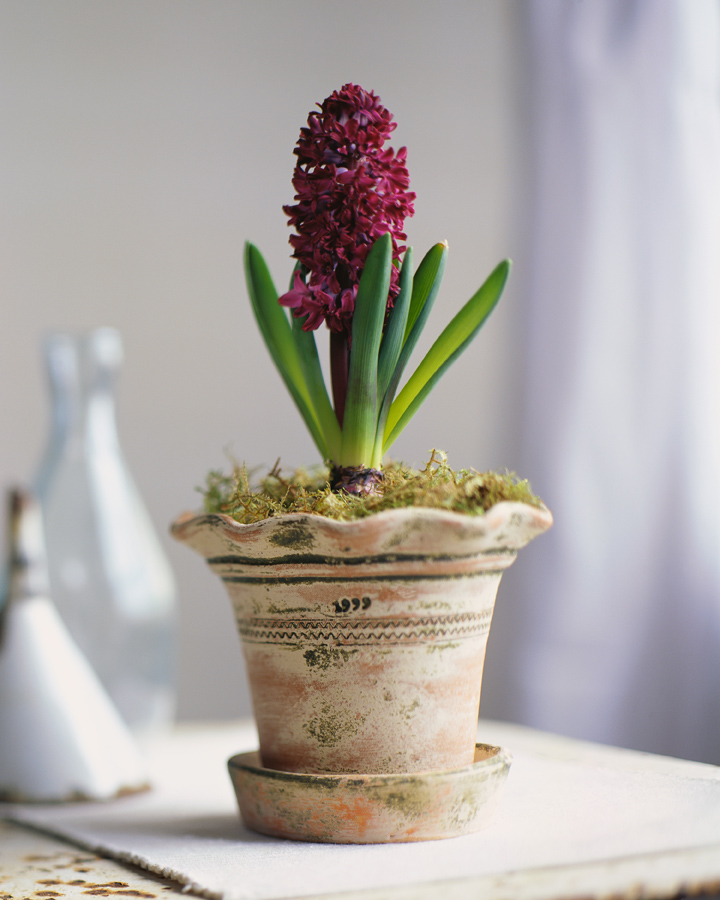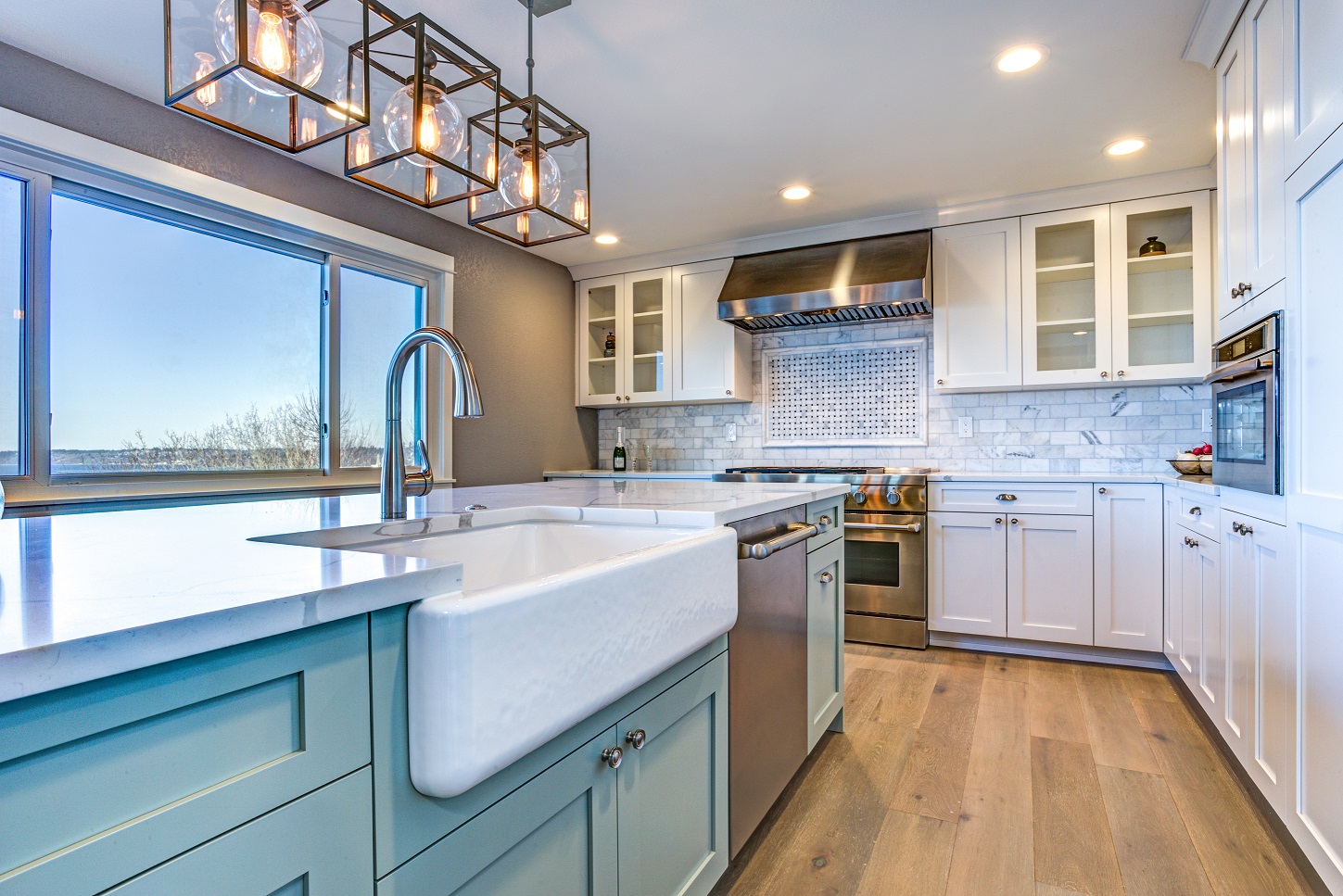This former builder’s home at 1417 Fairfield Ave has all the design features any buyer could want! As you enter this Victorian ranch home you notice maple wood floors with cherry wood inlay as a border. The open floor plan, beautiful woodwork, arches and cutouts give the home unique character. Relax by one of 3 fireplaces in winter or in the screened in patio in summer. Entertain your friends and family in the large finished basement which has a separate pool room and craft room. Call for your private showing at (970) 401-0123 for more information or click the link below for more details.
Beautiful Victorian Ranch Style Home in Windsor!
Chugging Along

The real estate market keeps chugging along.
Here’s news from the Mortgage Banker’s Association…
Last week, applications to purchase a home hit their highest level since April 2010. This is clearly a sign that the spring selling season is starting off in full swing.
You may remember that the reason why April 2010 was so active is because of the Home Buyer Tax Credit that was in effect. In order to get a special income tax incentive, buyers had to go under contract in April 2010 and close by June 30, 2010.
Today, purchase applications are at their highest level in 9 years and are up 14% over last year. Interest rates are roughly 0.5% lower than 6 months ago and roughly 3.0% below their long-term average.
Let the Spring Selling Season begin!
Spatially Limited Gardening: The Indoors is the New Outdoors

It is the official start to the gardening season! For those who have large outdoor spaces, it is the perfect time of year to make a trip to the home and garden store, work in your gardens, and plant new growth. For those who live in smaller city quarters and whose outdoor space comfortably holds little more than a potted plant, we are forced to be more creative with our green space.
Decorative plants and nurturing vegetation is something that makes my house a home, even if small city living quarters has forced us to learn to take the outdoors- in and work with what space we have. Indoor plants, flowers, and gardens are a pleasing alternative when you do not have the space or the desire to be outdoors. Adding some green to your home can be decorative, fragrant, and even edible. Planting and nurturing your growth is a fun do-it-yourself project that can be a whole household activity.
Where to start
How will you grow and what supplies will you need? First decide on your method of growing.
Traditional Potted Plants are a great starting point for the non-gardening types. Potting plants is relatively simple, cost efficient, and spatially low maintenance. Check out these ideas for potting and planting in small spaces.
Vertical Gardens break away from the customary terracotta pot. They are both modern and space saving. In a vertical garden you are able to grow a variety of plants, flowers, herbs, and vegetables. They can be practical and decorative inside or out. Learn more about creating your own vertical garden here.
Hydroponic Systems are a soil-free gardening solution that can involve little to no pesticide use. Green Tree’s Hydroponics reports that the growth rate of a hydroponic plant is 30-50 percent faster than that of a soil plant. Here’s what it takes to build your own, however you can also purchase hydroponic systems online.
Terrariums are “making a comeback” according to the New York Times. Terrariums can be uniquely ornamental and perfect for tight spaces that need a hint of green. Check out some samples and get design ideas here.
What growing methods have worked well for you?
What to grow?
That are good to eat …
Herbs: growing edible items can be very rewarding. Herbs are my go-to item to grow inside because they are low maintenance and take up little space. I prefer to pot basil, parsley, chives, thyme, cilantro, and oregano.
Grasses, like wheat grass, are becoming popular to grow indoors and decorate your home with.
Fruits and vegetables tend to take up more space and are more demanding. However tomatoes, peppers, radishes, leaf lettuce, potatoes, and carrots are a few fruits/vegetables that will grow well indoors.
That are good to look at …
Several flowers and house plants will flourish and bloom indoors. I enjoy the fragrance of Gardenia and the appeal of a Boston Fern in a hanging basket. However, using a plant encyclopedia will help you find which plant is right for you and your home.
What do you prefer to grow?
Making it look good?
The great part about bringing your garden inside is that it lets you use vegetation as a decoration. Whether you prefer to arrange flowers, string kokedama, or paint a fun plant pot, your vegetation and the way you display it can have an impact to your overall décor. How do you decorate with your vegetation?
Brittany Lockwood works in Marketing at Windermere Real Estate. She is the in-house expert on weatherizing, yard-sales, and interior design.
Home Warranties Provide Buyers and Sellers With A Peace Of Mind
 If you are a homeowner, you probably know all-too-well how costly home repairs can be. And, thanks to Murphy’s Law, appliance break-downs seem to happen at the worst possible time—like when you are selling your home. For this reason, it is in the best interest of all home sellers to consider purchasing a home warranty.
If you are a homeowner, you probably know all-too-well how costly home repairs can be. And, thanks to Murphy’s Law, appliance break-downs seem to happen at the worst possible time—like when you are selling your home. For this reason, it is in the best interest of all home sellers to consider purchasing a home warranty.
A home warranty offers many advantages to the home seller, the least of which is a peace of mind that your major home appliances are covered in the event of a break down. Most home warranties cover both parts and labor of your home’s most vital systems and major appliances. This protects the home seller from potentially large, unexpected repair bills and also allows the buyer to purchase the home with more confidence. Additionally, a home warranty is usually for the term of at least one year, so any unforeseen repairs/replacements are also covered well after the home has been sold. A home warranty also provides a competitive edge over those homes without warranties because it communicates confidence to buyers. This can add up to a faster selling period, resulting in a more convenient process for all involved.
A home is probably the single largest investment you’ll ever make, so the last thing you want as a home seller or buyer, are unexpected home repairs/replacements. Major appliance replacement can cost you several thousand dollars, and during the process of a home sale/purchase, your budget doesn’t often allow for costly expenses. A home warranty is designed to protect you from these types of expenditures. Furthermore, it is convenient for home sellers because a home warranty offers after-sale liability. While an inspection may find many faults that are covered by a home warranty, it cannot account for latent problems that are beyond an inspection’s scope, or problems that occur down the road. In most cases, a home warranty will cover these expenses, alleviating potential financial burdens for the seller once they have sold the home.
When considering a home warranty, it’s important to ask the right questions. Warranties vary from one company to the next and there are also many different types of coverage available. Your Realtor should be able to help you with this process. First and foremost, you should identify which components of the home will be covered by the warranty. It’s also important to attain annual costs and the charge for service calls. You will want to ask what the total dollar limit is on the warranty and what the limits are for the individual items that are covered. Many home sellers purchase home warranties, which are then passed along to the homebuyer when they move into the home. As a homebuyer, you may want to look into whether or not the coverage can be renewed once the warranty has expired.
According to American Home Shield, one of the largest home warranty companies in the nation, the average home warranty customer uses their warranty plan 2.3 times. Furthermore, the number of home warranties is increasing with every year because homeowners are becoming more informed of their benefits. Eventually home warranties will become commonplace, as buyers and sellers realize the advantages they offer. Ultimately, what it comes down to is that a home warranty is a very simple, cost-effective way to purchase a peace of mind for both homebuyers and sellers alike.
Which Market?

Well, it depends!
First, let’s define each market. According to research, a buyer’s market exists when there is more than 4-6 months of inventory on the market.
If it would take longer than 4-6 months to sell out all of the inventory currently for sale, then it is a buyer’s market.
This calculation is obviously a function of the amount of inventory on the market and the current pace of sales.
A seller’s market exists if it would take shorter than 4-6 months.
So, which is it?
It depends very much on the price range.
Here are the numbers for Northern Colorado:
• $300,000 to $400,000 = 0.9 months
• $400,000 to $500,000 = 1.9 months
• $500,000 to $750,000 = 2.3 months
• $750,000 and over = 5.8 months
So, most price ranges are a clear seller’s market. It’s not until $750,000 and over that the market starts to approach a more balanced state.
Here’s one more thing that might help you…
You probably don’t need a reminder that this is tax season.
Not only because tax returns are due in two weeks but also because you will soon receive your property tax notification in the mail.
Every two years your County re-assesses the value of your property and then sends that new value to you.
When this happens, many of our clients:
- Don’t agree with the new assessed value
- Aren’t sure what to do
- Are confused by the process
- Want to save money on property taxes
Good news! We have a webinar that will help you. On the webinar we will show you:
- How to read the information from the County
- What it means for you
- How to protest the valuation if you want
- How to get an accurate estimate of your property’s value
You can listen to the webinar live or get the recording. In any case, you can sign up at www.WindermereWorkshop.com
The webinar is April 17th at 10:00. If you can’t join live, go ahead and register so you can automatically receive the recording.
This is a complimentary online workshop for all of our clients. I hope you can join!
Increase your living space—and your home’s value
Cooking and dining alfresco is arguably the single greatest thing about warm weather in spring and summer, but most backyard barbeques involve a million trips to and from the kitchen. As such, one of the hottest trends in new home construction is outdoor kitchens. Outdoor kitchens typically feature a comfortable eating area with a combination of cabinets, sinks, warming drawers, prep counters, ranges, and refrigerators—all within arm’s reach of the grill. Outdoor kitchens provide a natural gathering spot for friends and family and can add to the value of your home.
How elaborate your outdoor kitchen should be depends on how often you plan to use it. Some people enjoying dining outdoors every evening, while others reserve it for special occasions and social gatherings. Regardless of the frequency of use, you need to use materials that do well in all kinds of weather. Stone sinks, stainless steel cabinets, and slate countertops will withstand the Seattle rain, as well as the months that pass between barbeque seasons. Many outdoor kitchens also feature pergolas or other roof structures to shield guests from sun and rain. Something else to consider is adding an outdoor gas heater or fireplace, which will extend the amount of time you can use your outdoor kitchen into the fall and winter months.
In addition to the convenience of having all your grilling accoutrements within a handy distance, a well-built outdoor kitchen also adds to the value of your home. And you don’t have to have a new home to reap the benefits. With the right space and backyard layout, owners of existing homes can easily add-on an outdoor kitchen area. When adding an outdoor kitchen to an existing home, power, gas, and water lines often have to be extended from the home, so be sure to hire a qualified contractor to do the work for you. By extending your living space outside, you have essentially increased the square footage of your home. In many cases the increase in your home’s value will equal or even sometimes exceed the cost of the project itself.
The benefits of an outdoor kitchen area and living space are many. And with the convenience of having your drinks, condiments, meat, and cooking space all in one easy-to-reach place, you can spend the precious summer moments right where you should—outside with friends and family.
What features would you include in an outdoor kitchen?
Get Real

We’ve seen some headlines recently that suggest home prices along the Front Range have peaked and are starting to decline.
When we dig in and do the research, this is what we find…
Home prices are still going up, just not as fast as they have been.
We’ve known that the double-digit appreciation that we’ve seen for the last several years could not be sustained and we expected the pace of appreciation to slow down.
So far in 2019, this is the case. Prices still going up, just not as fast.
It’s like running up stairs. Eventually you will get tired and you will need to start walking (but you’re still going up).
Headlines that suggest that prices have peaked and are falling create unrealistic expectations for buyers and give sellers a skewed perspective on the market.
Here are the numbers…
Average Price:
- Up 1.53% in Metro Denver
- Up 6.1% in Larimer County
- Up 5.1% in Weld County
Months of Inventory:
- 5 Months in Metro Denver
- 5 Months in Larimer County
- 4 Months in Weld County
- (Remember that 4-6 months of inventory represents a balanced market)
There has been an increase in Days on Market which means that homes are taking longer to sell. But the increase is measured in days, not months.
Here are those numbers…
Days on Market:
- Up 4 Days in Metro Denver
- Up 11 Days in Larimer County
- Up 3 Days in Weld County
So, be mindful of headlines that can be sensationalized and might suggest that the market is falling.
Bottom line, the market is going up, just not as fast as it was.
Weekend Warrior: Quick projects to upgrade your home

Memorial Day traditionally represents the kick-off of summer. Kids are getting out of school, families are making summer vacation plans, and backyard barbeques are on everyone’s minds. This is also a great time of the year to get your house in order and ready for the summer season. The following is a handful of ideas and tips to help you with this process.
Outdoor spaces
 Gardening– It’s not too late to start your garden! This weekend I will be planting an herb garden; I planted summer vegetables a few weeks ago. If you’re thinking of doing the same, just make sure you use starts because many summer harvest vegetables won’t start from seed this late in the season.
Gardening– It’s not too late to start your garden! This weekend I will be planting an herb garden; I planted summer vegetables a few weeks ago. If you’re thinking of doing the same, just make sure you use starts because many summer harvest vegetables won’t start from seed this late in the season.
Outdoor living– My home has an outdoor space with great potential, including a partially covered patio perfect for entertaining. This weekend I plan to upgrade the space with small touches to make it summer party ready. This includes finding outdoor lighting options, updating the seating and cleaning up the barbeque.
BBQ- Make sure your grill is ready to go this season by making sure everything is clean and in working order before you fire it up. In the northwest that includes making sure the fuel lines are spider-web-free. Also, make sure you have propane or charcoal on hand for impromptu dinners.
Clean Windows- Now is a great time to clean your windows, inside and out. Sun shows more dirt and smudges.
Lawn care- Prepare your lawn for the months ahead. Depending on where you live this means different things. Check your sprinkler system to make sure it wasn’t damaged over the winter; upgrade your lawn care to ensure fuller greens, check for and remove moss to prevent dead patches and start your weeding regimen.
Pool prep- If you have an outdoor pool get this ready for a summer season of fun in the sun, (unless you are lucky enough to enjoy your pool year-round). Same goes for hot-tubs. Make sure your equipment has been serviced, chemicals are available and your pool is clean and ready to use. OR, head to the local hardware store and buy your kiddie pool now before they run out, as I learned one particularly hot July!
De-winterize- I once was doused head to toe when we were turning the water back on to our exterior pipes because the pipe had split in the winter- so make sure all your pipes survived the cold, check your winterized projects and prepare your house for summer. This is also a good time to look around the exterior, checking roof, gutters and siding.
Summerize- Check or replace AC filters, window screens, and household fans to make sure these are all functioning and will help provide maximum circulation in your house. Consider installing an attic fan or vent to help pull heat out of your home all winter long. Pack away excess cold weather items such as heavy blankets, jackets and other items so they aren’t in your way. Same goes for any sundry items you only use during fall and winter.
Inside spaces
Lighten the Space- Though I likely won’t spend much time inside once the mercury rises, I want to keep the house as light and cool as possible. I have found that replacing the curtains with a lighter shade lets the light in, but also keeps the rooms from overheating from sun exposure. Summer always makes me want to lighten up with the accessories- lighter colors, more whites, bright accents and less clutter.
Rearrange – Freshen up spaces by rearranging some of your wall art. If you don’t have enough wall pieces to rearrange regularly it may be time to add to your collection. You can find inexpensive original art online at stores such as Etsy or in person at local galleries. You can always play with other items like framed images from books, vintage posters or record albums. Here are some terrific ideas for using what you have to add interest to a room.
 Air it out- Open all the windows, shake out the rugs and update home fragrances to fit summer moods (citrus, freesia, clean linen, coconut, melon, fruits and tropical, etc.). You can create your own diffuser with essential oils to distribute fragrance. This may be more symbolic than practical but it always makes me feel ready for summer.
Air it out- Open all the windows, shake out the rugs and update home fragrances to fit summer moods (citrus, freesia, clean linen, coconut, melon, fruits and tropical, etc.). You can create your own diffuser with essential oils to distribute fragrance. This may be more symbolic than practical but it always makes me feel ready for summer.
Paint- If you have a room you really want to refresh, a three-day weekend is a good time to take on a project of scale, so you have plenty of time to prep, paint, dry, and clean up. Painting is one of the least expensive ways to really transform how a room feels. Need help picking colors and paint type? Here is some good advice.
Garage or Basement- Tackle a big space that makes a big difference. Our garages and basements often become year-long dumping grounds for seasonal decorations and clothing, items that don’t fit in cabinets, memorabilia and maintenance tools. Go through your items and sort by keep, throw out and donate/sell and then group your keeps by function. Make sure your tools are accessible for easy gardening and entertaining by making sure your tools are accounted for, ready to go, and easy to reach. Here is a useful video on garage organization.
Yard/Garage Sale- If you have overflow at your house, plan a yard/garage sale to get rid of items you no longer need or want. Just make sure to pack everything up and donate it at the end of the sale otherwise you are just letting the clutter back in!
Plan a party- Once your space is all cleaned up and redecorated you will want to show it off! Plan a summer BBQ, dinner party, pool party, picnic or any other gathering.
What are your planning for Memorial Day weekend?
 Facebook
Facebook
 X
X
 Pinterest
Pinterest
 Copy Link
Copy Link







